Introduction
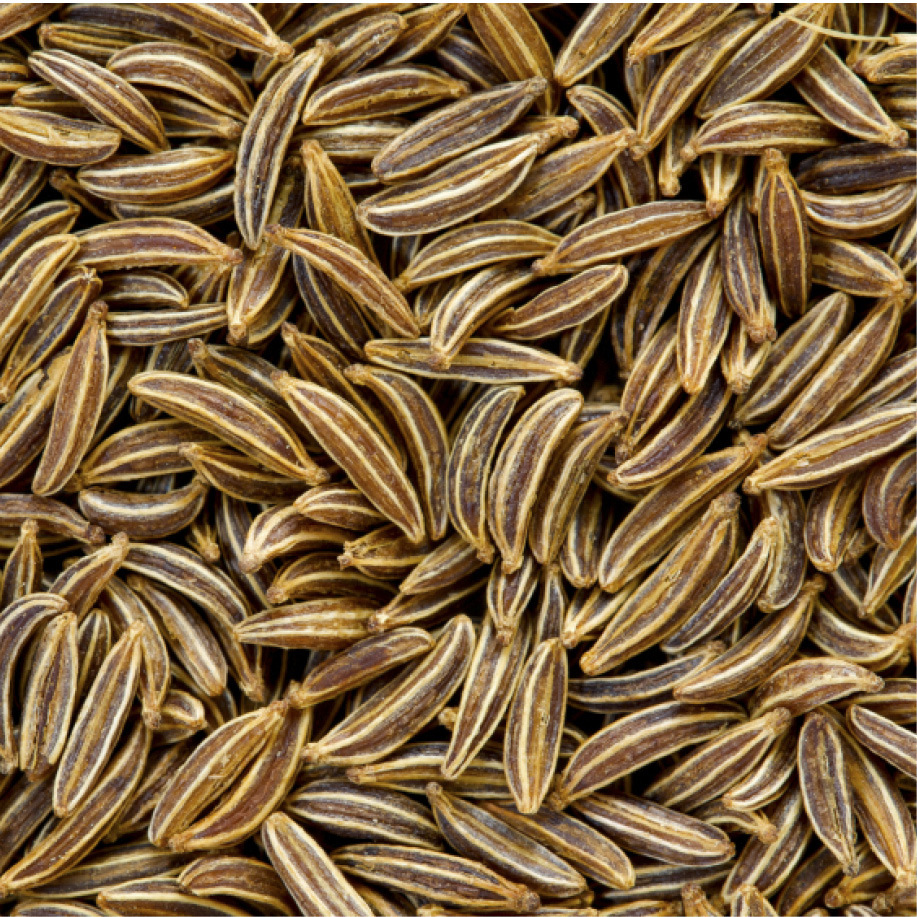
Welcome to the flavorful journey of Fennel Seeds vs. Caraway Seeds. While these two spices may appear similar, they each bring their distinct characteristics to the table. Fennel is known for its sweet and aromatic flavor, often used in Mediterranean and Indian cuisines. Caraway, on the other hand, has a warm and earthy taste, popular in Eastern European dishes. Beyond their culinary uses, both fennel and caraway offer various health benefits. In this article, we will delve into the unique qualities of these herbs, compare their nutritional benefits, explore their flavor profiles, and provide recipe ideas for incorporating them into your cooking. Get ready to discover the wonders of fennel and caraway!
Overview Of Fennel And Caraway
Fennel and caraway are both aromatic spices that add unique flavors to dishes from different culinary traditions. Fennel seeds, derived from the Foeniculum vulgare plant, have a sweet and licorice-like taste, commonly used in Mediterranean and Indian cuisines. On the other hand, caraway seeds, originating from the Carum carvi plant, offer an earthy and warm flavor, popular in Eastern European dishes. While fennel seeds have a slightly larger size and a pale green or yellow-brown color, caraway seeds are smaller and dark brown in color. Despite some similarities, these two spices have distinct characteristics that make them stand out in their own way.
Nutritional Benefits Comparison
When comparing the nutritional benefits of fennel and caraway, there are some noticeable differences. Fennel seeds are higher in minerals and fiber, making them a great addition to a balanced diet. On the other hand, caraway seeds contain more vitamins and are lower in sodium than fennel. Both spices offer their unique contribution to overall nutrition. It’s important to note that the nutritional value may slightly vary depending on the form in which these spices are consumed, whether it’s the seeds or powdered form. Incorporating both fennel and caraway into your diet can provide a diverse range of nutrients.
Fennel
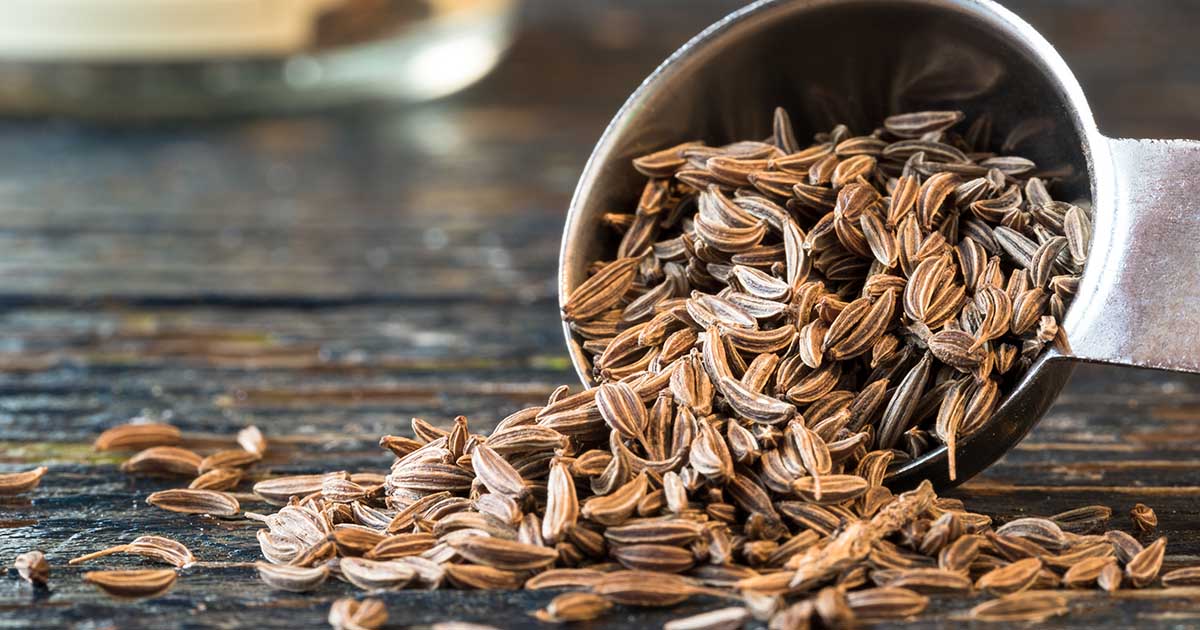
Fennel, derived from the Foeniculum vulgare plant, is a beloved herb with a distinctive anise-like flavor. Its bulb, stalks, and fronds are commonly used in cooking, while its seeds are popular as a spice. Fennel adds a refreshing and herbaceous taste to a variety of dishes, including salads, soups, and roasted vegetables. Apart from its flavor, fennel also offers numerous health benefits. It is known to aid digestion, promote heart health, and support a healthy immune system. With its flavorful profile and healthful properties, fennel is a versatile herb that can enhance any culinary creation.
Fennel Characteristics And Culinary Uses
Fennel is known for its unique characteristics and versatility in the culinary world. Its bulb, stalks, and fronds are all edible and offer different textures and flavors. The bulb has a crisp, crunchy texture, while the stalks are tender and have a subtle sweetness. The fronds resemble dill and can be used as a garnish or in salads. Fennel’s flavor profile adds a refreshing and herbaceous taste to dishes. It pairs well with seafood, citrus, and other aromatic herbs like thyme and rosemary. Fennel can be roasted, sautéed, or used raw in salads, soups, stews, and even desserts.
Health Benefits Of Consuming Fennel
Fennel not only adds flavor to dishes but also offers several health benefits. It is a good source of dietary fiber, which aids in digestion and helps prevent constipation. Fennel also contains antioxidants such as vitamin C, which boost the immune system and protect against free radicals. Additionally, fennel is rich in minerals like potassium and calcium, which support bone health and help regulate blood pressure. Its anti-inflammatory properties may reduce inflammation in the body, providing relief from conditions like arthritis. Including fennel in your diet can promote overall health and well-being.
Caraway
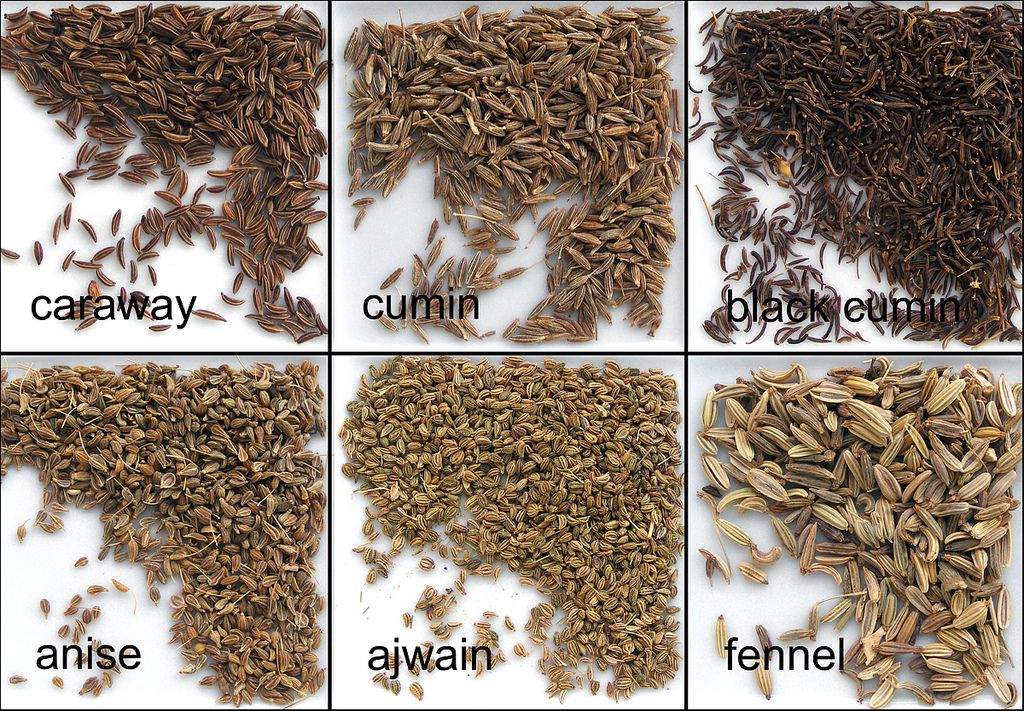
Caraway, derived from the Carum carvi plant, is a versatile spice that offers a unique flavor to various dishes. These small, crescent-shaped seeds have a distinct earthy and warm taste, often described as a combination of anise and fennel. Caraway seeds are commonly used in European cuisine, particularly in traditional dishes like sauerkraut, rye bread, and goulash. They can also be found in liqueurs and herbal teas. In addition to its culinary uses, caraway has been used in traditional medicine for its digestive properties and may help alleviate symptoms such as bloating and stomach discomfort. Including caraway in your cooking can add a flavorful twist to your dishes while offering potential health benefits.
Caraway Characteristics And Culinary Uses
Caraway, derived from the Carum carvi plant, is known for its unique characteristics and culinary uses. These small, crescent-shaped seeds have an earthy and warm flavor, reminiscent of a blend of anise and fennel. Caraway seeds are commonly used in European cuisine, particularly in traditional dishes such as sauerkraut, rye bread, and goulash. They can also be found in liqueurs and herbal teas, adding a distinctive taste. Apart from their culinary applications, caraway seeds are also known for their potential health benefits, particularly in aiding digestion and alleviating bloating and stomach discomfort. Experimenting with caraway seeds in your cooking can add a flavorful twist to your dishes while potentially providing digestive support.
Health Benefits Of Consuming Caraway
Caraway seeds offer several potential health benefits. They have been traditionally used as a natural remedy for digestive issues such as bloating and stomach discomfort. The essential oils in caraway seeds can help stimulate the production of digestive enzymes, aiding in the breakdown of food and preventing indigestion. Caraway seeds also have antimicrobial properties, which may help fight against harmful bacteria in the gut. Furthermore, caraway seeds are rich in antioxidants, which can help reduce oxidative stress and inflammation in the body. Adding caraway seeds to your diet can be a flavorful way to support your digestive health.
Flavor Profile
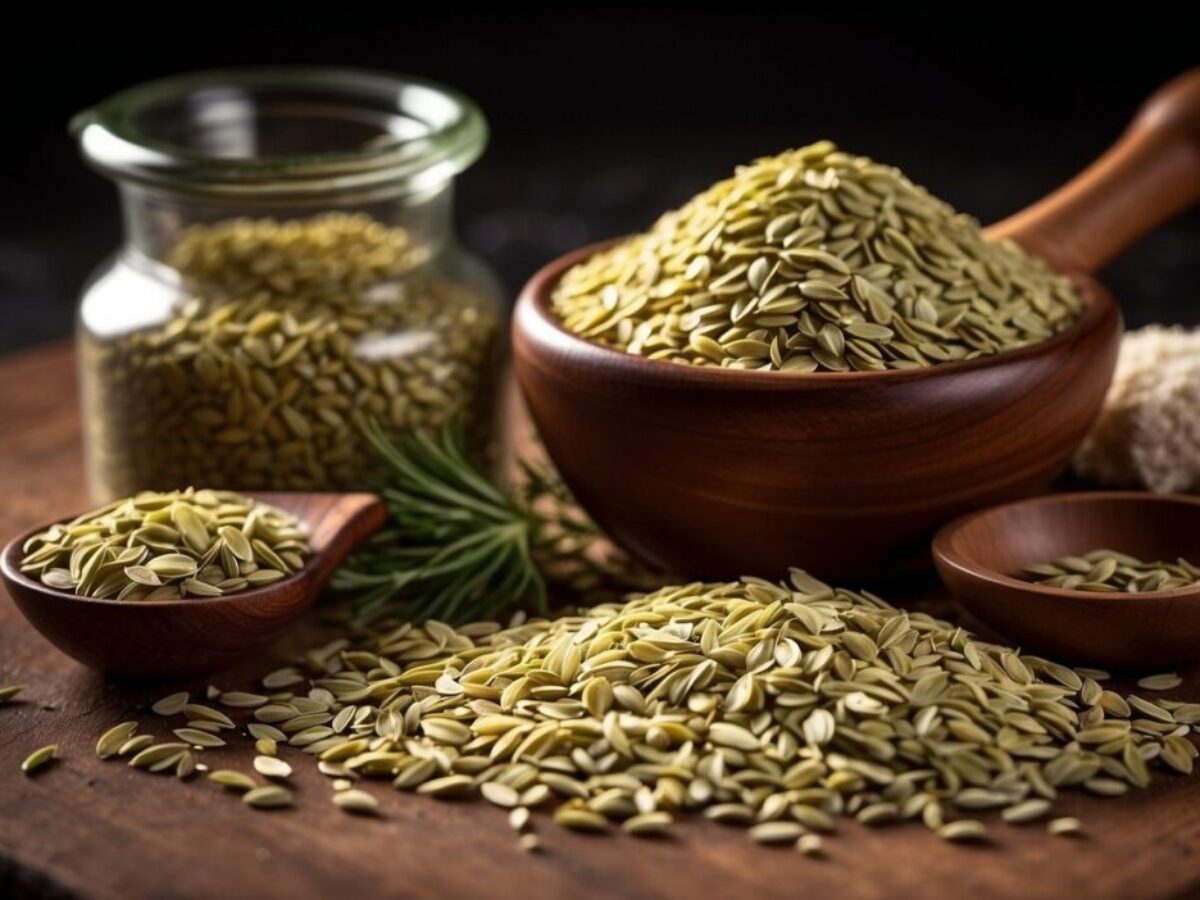
Fennel and caraway seeds have distinct flavor profiles that can enhance a variety of dishes. Fennel seeds have a sweet and refreshing taste with a pronounced anise-like flavor. They add a subtle licorice note to dishes, making them a popular choice in Mediterranean and Italian cuisines. On the other hand, caraway seeds have an earthy and warm taste with a hint of citrus. They bring a deeper and slightly bitter flavor to dishes, especially in Eastern European and German cuisines. The contrasting flavors of fennel and caraway add depth and complexity to dishes and can be used to create a unique culinary experience.
Contrasting Flavors Of Fennel And Caraway
Fennel and caraway seeds offer contrasting flavors that can elevate the taste of your dishes. Fennel seeds have a sweet and refreshing flavor with a distinct anise-like taste. They add a subtle licorice note to your recipes, bringing a unique and vibrant element. On the other hand, caraway seeds have an earthy and warm flavor with hints of citrus. They bring a deeper and slightly bitter taste to your dishes, adding complexity and depth. The combination of these flavors creates a harmonious balance, allowing you to create culinary masterpieces that tantalize the taste buds. So whether you prefer the sweetness of fennel or the earthiness of caraway, both spices have their own distinct charm to enhance your cooking.
How To Use Fennel And Caraway In Dishes
Fennel and caraway seeds can be used in a variety of dishes to enhance the flavor and add a unique twist. Here are some ideas on how to incorporate these spices into your culinary creations:
- Baking: Sprinkle fennel seeds on top of bread, muffins, or cakes to add a touch of sweetness and anise-like flavor. Caraway seeds can be mixed into dough for bread or used as a topping for savory pastries.
- Roasting: Toss roasted vegetables such as potatoes, carrots, or squash with a sprinkle of fennel seeds to add a fresh and aromatic note. Caraway seeds can be used to season roasted meats like pork or lamb for a flavorful and earthy taste.
- Sauces and dressings: Crush fennel seeds and add them to marinades, sauces, or dressings for a burst of flavor. Caraway seeds can be infused into vinegar or oil to create a unique and tangy dressing for salads or drizzling over roasted vegetables.
- Pickling: Add fennel or caraway seeds to pickling brine for a subtle and complex flavor. They pair well with pickled cucumbers, beets, onions, or cabbage, adding a hint of sweetness and earthiness.
- Spice blends: Combine fennel seeds and caraway seeds with other spices like cumin, coriander, or mustard to create your own custom spice blends. These blends can be used to season meats, vegetables, or even sprinkle over popcorn for a flavorful snack.
Remember to toast the seeds before using them to enhance their aroma and release their oils. Experiment with different combinations to find your favorite flavor profile and enjoy the aromatic journey that fennel and caraway seeds can offer to your dishes.
Comparison
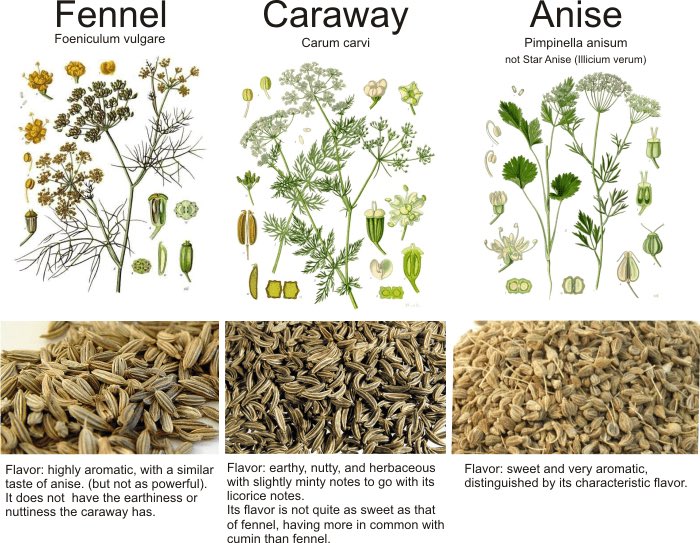
In the final analysis, comparing fennel and caraway reveals some interesting similarities and differences. While both spices offer distinct flavor profiles, fennel leans towards a sweeter and anise-like taste, while caraway provides an earthy and warm flavor. In terms of health benefits, both fennel and caraway are rich in antioxidants and have digestive properties. However, fennel is known for its anti-inflammatory effects and caraway is associated with promoting weight loss. Ultimately, the choice between fennel and caraway in cooking depends on personal preference and the desired flavor profile for your dish.
Head-to-head Comparison Between Fennel And Caraway
In a head-to-head comparison, fennel and caraway offer distinct characteristics. Fennel has a sweeter and anise-like taste, while caraway provides an earthy and warm flavor. When it comes to their nutritional benefits, both spices are rich in antioxidants and have digestive properties. However, fennel is known for its anti-inflammatory effects, while caraway is associated with promoting weight loss. When deciding between fennel and caraway in cooking, it ultimately comes down to personal preference and the desired flavor profile for your dish. So, whether you choose fennel or caraway, both spices can add depth and complexity to your recipes.
Similarities And Differences In Taste And Health Benefits
Both fennel and caraway possess distinct taste profiles with some similarities. They both have an aromatic quality that adds depth to dishes. However, fennel has a sweeter and anise-like taste, while caraway offers an earthy and warm flavor.
In terms of health benefits, both spices are rich in antioxidants and known for their digestive properties. Fennel has anti-inflammatory effects, which can be beneficial for reducing inflammation in the body. On the other hand, caraway is associated with promoting weight loss due to its metabolism-boosting properties.
Overall, both fennel and caraway provide unique flavors and health benefits, allowing you to choose based on your personal preferences and specific health goals.
Conclusion
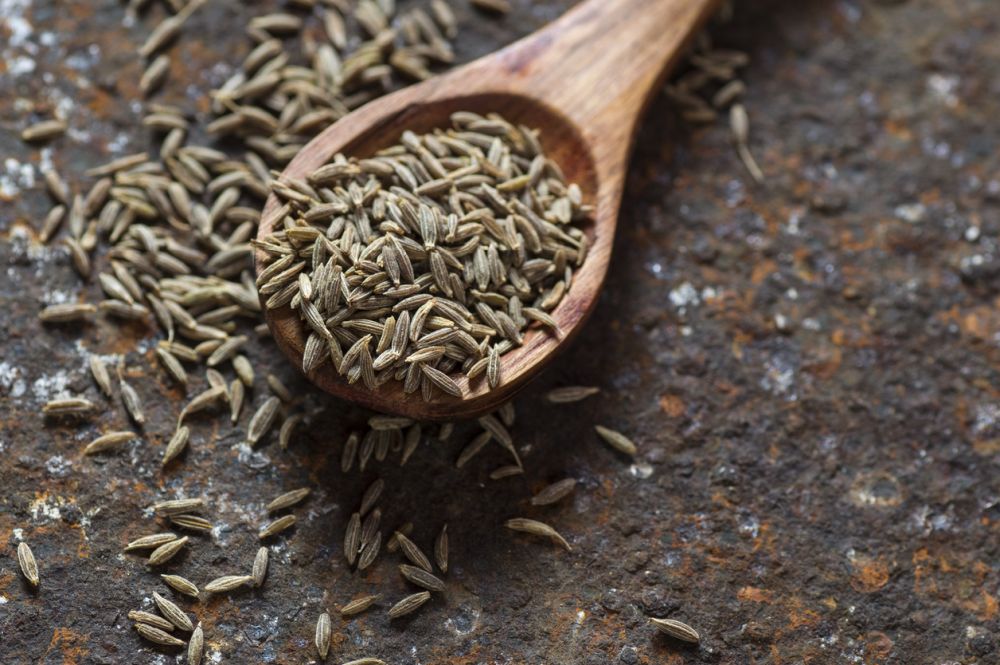
In conclusion, both fennel and caraway seeds offer unique flavors and health benefits that can elevate your dishes. Fennel brings a sweet and anise-like taste, while caraway offers an earthy and warm flavor. Both spices are rich in antioxidants and have digestive properties. Fennel has anti-inflammatory effects, while caraway is associated with promoting weight loss. Whether you choose fennel or caraway depends on your personal preference and specific health goals. Experiment with these spices in your cooking to add depth and aroma to your dishes. So why not spice up your culinary repertoire with fennel and caraway seeds?
Choosing Between Fennel And Caraway In Cooking
When it comes to choosing between fennel and caraway in cooking, it ultimately depends on personal preference and the specific dish you’re preparing.
If you prefer a sweeter and more anise-like flavor, fennel seeds are the way to go. They work well in dishes like roasted vegetables, seafood, and even desserts. On the other hand, if you’re looking for a slightly earthy and warm taste, caraway seeds are a great option. They pair perfectly with hearty dishes like soups, stews, and meats. Experiment with both spices to add depth and aroma to your dishes and find out which one suits your taste buds best.
Recipe Ideas Using Fennel And Caraway
There are numerous delicious recipes that incorporate the flavors of fennel and caraway. For a simple yet flavorful dish, try roasting vegetables like carrots and potatoes with a sprinkle of fennel seeds and caraway seeds. The spices will infuse the vegetables with their unique taste and add a depth of flavor. Another idea is to use fennel and caraway seeds in homemade breads or crackers, giving them a distinctive and aromatic twist. These spices also work well in marinades for meats and fish, enhancing the overall flavor profile. Explore the world of fennel and caraway in your cooking and let your creativity shine!
FAQ About Herbaceous Showdown: Fennel Vs Caraway
Q: What are the main differences between Fennel and Caraway?
A: Fennel and Caraway are both flowering plants in the Apiaceae family, but they have distinct characteristics. Fennel has a sweeter, anise-like flavor with a hint of licorice, while Caraway has a sharper, earthy taste reminiscent of cumin.
Q: How are Fennel and Caraway commonly used in cooking?
A: Fennel is often used in salads, soups, and roasted dishes, as well as a flavoring agent in drinks and desserts. Caraway, on the other hand, is popular in bread, sauerkraut, stews, and as a seasoning for meats and vegetables.
Q: Are there any health benefits associated with Fennel and Caraway?
A: Both Fennel and Caraway are known for their digestive properties and may help with bloating, indigestion, and gas. Fennel is also believed to have antioxidant and anti-inflammatory properties, while Caraway is rich in antioxidants and may have antibacterial effects.
Q: Can Fennel and Caraway be used interchangeably in recipes?
A: While Fennel and Caraway have distinct flavors, they can sometimes be used interchangeably depending on the recipe. It’s essential to consider the desired taste profile and adjust the quantities accordingly when substituting one for the other.
Q: How should Fennel and Caraway be stored to maintain freshness?
A: Fennel bulbs should be refrigerated in a plastic bag to preserve their crispness, while Fennel seeds and Caraway seeds should be stored in airtight containers away from heat and light to maintain their flavor and potency.
Q: Are there any culinary tips for using Fennel and Caraway together in dishes?
A: Fennel and Caraway can complement each other beautifully in dishes such as roasted vegetables, braised meats, or pickled foods. Experimenting with different combinations and ratios can help balance the flavors and elevate the overall taste of the dish.

The Finer Diner has a rich history deeply rooted in the Mt. Oliver and Hilltop community. Our journey began with a simple yet ambitious vision – to create a welcoming space where friends and families could come together to enjoy delicious, comforting meals in a classic diner-style setting. Since our establishment, we have been dedicated to serving food, creating lasting memories, and fostering a sense of belonging within our community. Our commitment to quality, authenticity, and exceptional service has been the cornerstone of our success.